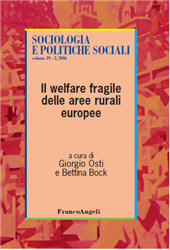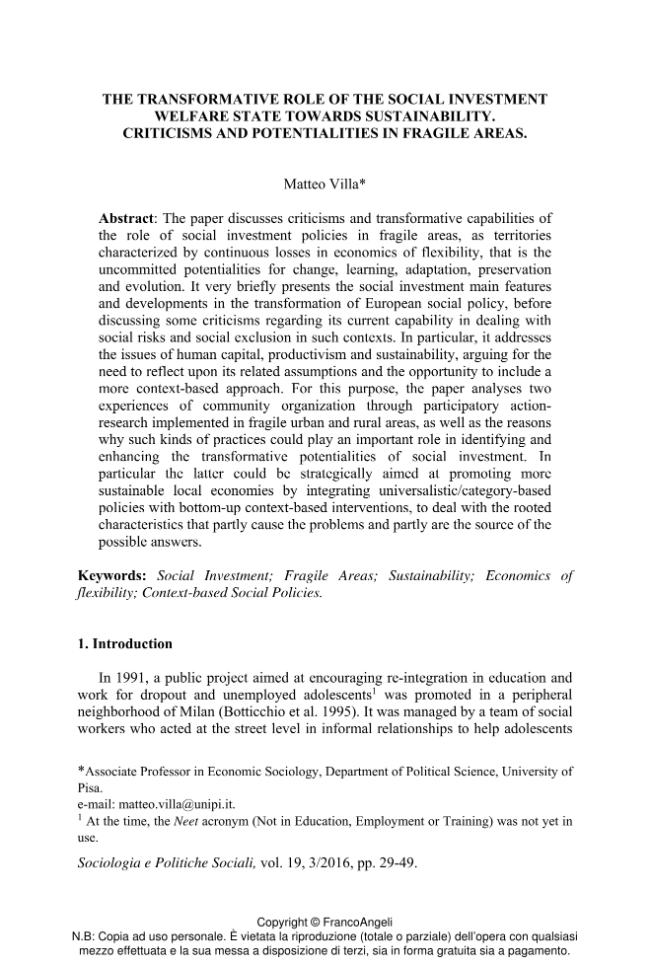The transformative role of the social investment welfare state towards sustainability : criticisms and potentialities in fragile areas :.
29-49 p.
The paper discusses criticisms and transformative capabilities ofthe role of social investment policies in fragile areas, as territoriescharacterized by continuous losses in economics of flexibility, that is theuncommitted potentialities for change, learning, adaptation, preservationand evolution. It very briefly presents the social investment main featuresand developments in the transformation of European social policy, beforediscussing some criticisms regarding its current capability in dealing withsocial risks and social exclusion in such contexts. In particular, it addressesthe issues of human capital, productivism and sustainability, arguing for theneed to reflect upon its related assumptions and the opportunity to include amore context-based approach. For this purpose, the paper analyses twoexperiences of community organization through participatory actionresearchimplemented in fragile urban and rural areas, as well as the reasonswhy such kinds of practices could play an important role in identifying an
denhancing the transformative potentialities of social investment. Inparticular the latter could be strategically aimed at promoting moresustainable local economies by integrating universalistic/category-basedpolicies with bottom-up context-based interventions, to deal with the rootedcharacteristics that partly cause the problems and partly are the source of thepossible answers. [Publisher's Text].
Is part of
Sociologia e politiche sociali : 3, 2016-
Articles from the same issue (available individually)
-
Information
ISSN: 1972-5116
KEYWORDS
- Social Investment, Fragile Areas, Sustainability, Economics offlexibility, Context-based Social Policies



